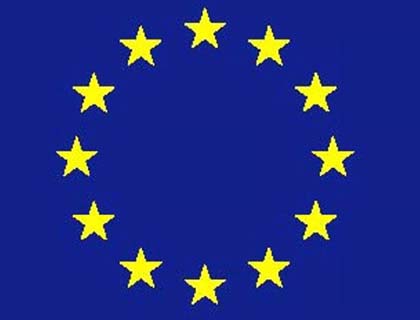KABUL - Foreign ministers of the 27 European Union member states on Monday reaffirmed their long-term commitment to supporting Afghanistan during transition and the decade of transformation.
With Afghanistan top on the agenda, the ministers, together with the High Representative for Foreign Affairs and Security Policy/Vice-President of the European Commission Catherine Ashton, discussed the EU's engagement in Afghanistan for the years to come.
The EU Delegation to Afghanistan said in a statement on Tuesday that the EU Council, recalling its conclusions of November 2011, noted the EU commitment required a reciprocal and genuine effort by Afghan authorities to meet the reform obligations agreed at the Kabul and Bonn Conferences.
The Council also welcomed the opening of negotiations on the EU-Afghanistan cooperation agreement on partnership and development, which should provide a framework for relations in the coming years and strengthen mutual cooperation.
In line with EU and its member states' long-term commitment, EU will continue to priorities Afghanistan, making an enhanced contribution to support for the country, in the context of fulfillment by the Afghan authorities of their reform obligations, the statement said.
It said the EU will maintain a balance between support to governance, including significant support to an effective Afghan civilian police force and the rule of law, and also the social and productive sectors, with a continued emphasis on capacity-building.
"In this regard, the EU intents to reallocate an increased share of its bilateral support for governance in Afghanistan for 2012-13 for the Afghan National Police through the Law and Order Trust Fund (LOTFA)," the release said, noting that it was essential to ensure LOTFA was efficiently, transparently and accountably managed.
The council conclusions further reflected EU's position regarding the May 21-22 Chicago Summit, the July Tokyo conference and the Kabul ministerial conference, with the council noting both upcoming meetings would offer the opportunity to shape the further course of transition and international engagement after 2014.
For Tokyo, the EU will advocate a progressive approach in the form of a roadmap, matching donors' alignment with the Afghan government's national priority programs with progress on issues such as governance and human rights.
On the heart of Asia process and Kabul ministerial conference, the Council restated its support as well as its readiness to support confidence-building measures. Further, in cooperation with all relevant stakeholders, the EU will consider the possible development of ways to deepen its regional engagement in the framework of a comprehensive approach, added the statement.
EU foreign ministers took the opportunity to stress the importance of holding of inclusive and credible presidential and parliamentary elections, adding that the EU stood ready to continue supporting Afghan efforts to reform the electoral system and to strengthen the independent electoral institutions.
The EU also underlined the importance of an Afghan-led, inclusive peace process and the role of an independent and active civil society for the future of Afghanistan. The EU reminded of the importance of establishing a legal system that ensures for the respect of human rights, in particular those of women and children and capable of protecting the rights of economic operators.
Commenting on the conclusions EU Delegation head and Special Representative, Ambassador Vygaudas Ušackas said: "The ongoing negotiations of the EU-Afghanistan partnership agreement on cooperation and development clearly indicate that EU is committed to Afghanistan for the long term, assisting the Afghan government in becoming financially self-sustainable by fostering economic development in Afghanistan and the region, and supporting the country to move towards long lasting peace and stability to the benefit of the Afghan government and people."
"Partnership is a two way track with mutual commitments. The international community is committed to Afghanistan for the long-term but at the same time it is important that the Afghan government delivers on its commitments, strengthens the integrity of its institutions, fosters a balanced separation of power and adheres to international commitments."
The summit in Chicago is expected to map out the full handover of responsibility for security to Afghan troops and the withdrawal of foreign troops by 2014.
President Hamid Karzai said in mid-April that he will ask the international community to support Afghanistan's security efforts to the tune of "at least $2 billion" (€1.5bn) a year after foreign combat troops leaves. (Pajhwok)

